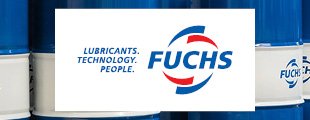

Synthetic lubricants for HVAC systems from FUCHS LUBRICANTS SOUTH AFRICA
A range of synthetic lubricants for use in Heating, Ventilation, and Air Conditioning (HVAC) systems is available from global lubricant manufacturer FUCHS. Its RENISO product range includes synthetic lubricants based on polyol esters (POE), polyalphaolefin (PAO), alkyl benzenes (AB) and polyalkylene glycols (PAG), as well as selected mineral oils with outstanding low-temperature properties.
There is always a suitable RENISO refrigeration oil in the FUCHS portfolio, both for conventional hydrofluorocarbons (HFCs) such as R134a, R410A or R407C, and natural refrigerants such as NH3, CO2 or hydrocarbons. In addition, there are developments of new hydrofluoroolefin (HFO) refrigerants such as R1234ze and R1234yf. “Their mixtures are currently tested in our development laboratories,” says Ashleigh Pollen, Industrial and Speciality Manager, FUCHS LUBRICANTS SOUTH AFRICA.
At FUCHS, comprehensive stability tests are performed with the Sealed Tube apparatus in special laboratory equipment. Miscibility and solubility tests of refrigeration oils with several refrigerants are performed in refrigerant atmosphere. The very latest laboratory technology together with specially constructed test rigs allow wear protection trials to be performed on refrigeration oil and refrigerant mixtures.
Long-term trials of hermetically sealed compressors in gas circuits can also be performed on FUCHS test rigs. The thermal and chemical stability of refrigerant-oil mixtures can be evaluated in special high-pressure autoclaves. These FUCHS in-house laboratory test rigs guarantee exceptional expertise. Specific customer set ups can be examined, and suitable lubricants can be selected and improved continuously.
Due to the new challenges for refrigeration oils presented by the European F-gases regulation (EU no. 517/2014), a reliable and innovative manufacturer of lubricants like FUCHS becomes a more and more important partner in refrigeration technology.
“The use of synthetic lubricants in HVAC systems can provide several benefits,” comments Pollen. Synthetic lubricants typically have better thermal stability compared to conventional mineral oils. This allows them to withstand higher operating temperatures without breaking down, ensuring consistent performance in HVAC systems.
The superior lubricating properties of synthetic oils can reduce friction and wear in HVAC components. This, in turn, contributes to improved system efficiency by minimizing energy losses associated with friction. The excellent oxidative and thermal stability of synthetic lubricants can contribute to longer equipment life. Reduced wear and lower maintenance requirements can lead to increased reliability and longevity of HVAC components.
Synthetic lubricants often have lower pour points and better flow characteristics at low temperatures compared to mineral oils. This can be particularly beneficial in HVAC systems operating in cold climates, as it helps maintain proper lubrication even in freezing conditions.
Synthetic lubricants are less prone to oxidation and degradation over time. This resistance to chemical breakdown helps maintain the lubricant's performance characteristics, ensuring reliable operation of HVAC equipment. The enhanced durability and stability of synthetic lubricants can lead to reduced equipment downtime. This is especially important in critical HVAC applications where uninterrupted operation is essential.
Synthetic lubricants are often formulated to be compatible with a wide range of seals and materials used in HVAC systems. This helps prevent issues such as seal deterioration or material incompatibility that can arise with certain conventional oils.
“When considering the use of FUCHS synthetic lubricants in HVAC systems, it is essential to consult with the manufacturer‘s recommendations and guidelines to ensure proper compatibility and performance. In addition, regular maintenance and monitoring of lubricant condition should be part of the overall HVAC system care,” concludes Pollen.

